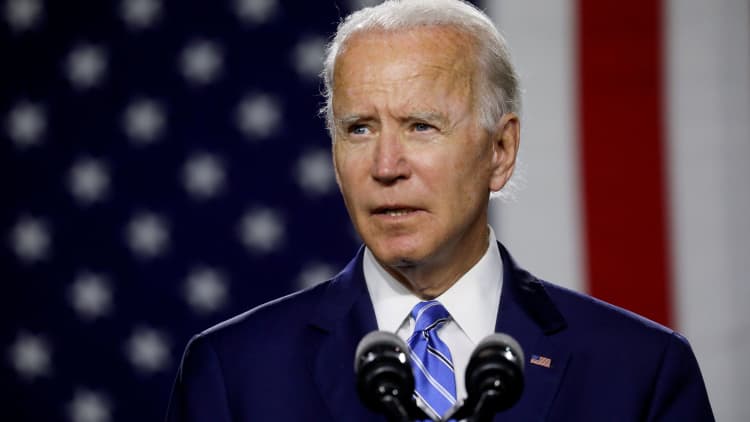Sen. Elizabeth Warren, D-Mass., and Senate Majority Leader Chuck Schumer, D-N.Y., are warning the Biden administration that restarting student loan payments in February could drag down the economic recovery.
The senators also repeated their call on President Joe Biden to cancel the debt.
In March 2020 – almost two years ago now – the U.S. Department of Education offered the millions of Americans with student loans the option of pressing the pause button on their bills. Close to 90% of borrowers accepted.
"Prior to the COVID-19 payments pause, student loan borrowers paid an average of $393 per month toward their student loans," the senators wrote, along with Rep. Ayanna Pressley, D-Mass., in a letter to the White House on Wednesday.
"These payments hurt individual families and the economy as a whole and will have a significant negative effect if the administration ends the payment pause as scheduled." (That reprieve is slated to end on Jan. 31.)
More from Personal Finance:
House bill's child tax credit is a boon for low earners
Unstable employment puts families with kids at higher risk of poverty
Here are must-know changes for the 2021 tax season
Those in support of beginning payments again point out that joblessness among younger people is close to pre-pandemic levels and extending the pause is only delaying the inevitable.
"Unemployment rates have normalized," said Mark Kantrowitz, a higher education expert. "Delinquency rates are better now than they were before the pandemic.
"Why is there a need for a further extension?"
Meanwhile, there are people with student debt who faced little or no economic hardship during the pandemic, said Scott Buchanan, executive director of the Student Loan Servicing Alliance, a trade group for loan servicing companies and their affiliates.
For those, Buchanan said, "the suspension has really just extended the term of their loan so they will pay off their loan several years later than they would have otherwise."
Yet recent polling of borrowers found that around 90% are still not financially secure enough to resume their payments, the senators point out in their letter.
Restarting the collection of student loans "will strip more than $85 billion from approximately 18 million American families over the next year," the officials said, citing an analysis they requested from the Roosevelt Institute.
The liberal think tank's research also found that canceling the country's $1.7 trillion outstanding student loan balance "has the potential to add $173 billion to the nation's GDP the first year after implementation— and billions more over time."
With student loan forgiveness excluded from the Democrats $1.9 trillion spending bill working its way through Congress, proponents of a jubilee have turned their hope to the president to cancel the debt via executive action.
Since in office, however, Biden has continued to express skepticism about the benefits of blanket loan cancellation.

In an interview with columnist David Brooks of The New York Times in May, Biden said, "the idea that you go to Penn and you're paying a total of 70,000 bucks a year and the public should pay for that? I don't agree." Later, at a CNN town hall, he said that it didn't make sense to cancel loans "for people who have gone to Harvard and Yale and Penn."
Advocates point out that it's largely a myth that people with student debt — particularly those struggling with it — have the benefit of a prestigious education behind them.
Indeed, fewer than 1% of borrowers attended an Ivy League college.
"We have to look at what's really happening with this crisis and who is actually being impacted," said Ashley Harrington, federal advocacy director at the Center for Responsible Lending.
"Student loan debt disproportionately impacts low-income, low-wealth people," she said, adding that "Black and brown people are struggling the most."


